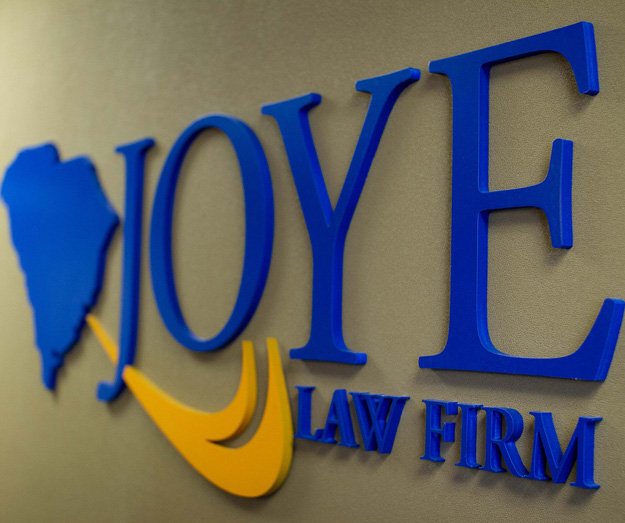
The headline is dismaying: “Hospitals know how to protect mothers. They just aren’t doing it.”
The premise of the 5,000-word USA Today report is stunning:
“The vast majority of women in America give birth without incident. But each year, more than 50,000 are severely injured. About 700 mothers die. The best estimates say that half of these deaths could be prevented and half the injuries reduced or eliminated with better care.
“Instead, the U.S. continues to watch other countries improve as it falls behind. Today, this is the most dangerous place in the developed world to give birth.”
The article is based on more than 500,000 pages of internal hospital quality records, contact with 75 birthing hospitals to track whether they follow recommended procedures, and the cases of more than 150 women who suffered birth injuries caused by medical negligence.
Reporters identified hospitals in several states where health-care providers regularly failed to monitor women’s blood pressure and blood loss before, during and after childbirth. High blood pressure prior to giving birth can lead to preeclampsia, a precursor to eclampsia, a serious condition that can put mother and baby at risk.
Postpartum hemorrhage, or excessive bleeding, can cause a severe drop in the mother’s blood pressure and may lead to shock and death if not properly treated.
According to the report on maternal mortality:
- Fewer than half of maternity patients were promptly treated for dangerous blood pressure that put them at risk of stroke as well as eclampsia.
- Hospitals failed to recognize women’s internal bleeding for hours.
- Hospitals regularly failed to quantify women’s blood loss during birth.
- Hospitals failed to track whether mothers with dangerously high blood pressure got proper medication in time.
The article said the lack of proper attention occurs at both large and small hospitals, from tiny community delivery units to major birthing centers that have state-of-the art technology and training. A doctor monitoring a woman’s pregnancy also may miss or fail to act on signs of serious complications during pregnancy and after delivery.
Report Questions South Carolina Maternity Care
One of several “sidebar” reports, titled “Mommy went to Heaven,” tells the story of YoLanda Mention, who McLeod Regional Medical Center in Florence, S.C., allegedly sent home with her newborn despite the new mother having dangerously high blood pressure.
When she returned to the hospital with even higher blood pressure and an excruciating headache, the staff made her sit for hours in the emergency waiting room before providing insufficient treatment, the report says.
Elsewhere in the Carolinas, more than 65 percent of mothers with high blood pressure at Bon Secours St. Francis Hospital in Charleston, South Carolina, did not receive recommended blood pressure medicine within the one-hour deadline recommended by the Alliance for Innovation on Maternal Health (AIM).
At Carolinas Medical Center in Charlotte, North Carolina, nearly 40 percent of mothers did not receive timely blood-pressure treatments under AIM guidelines. The failure rate was 78 percent at Carolinas HealthCare System NorthEast in Concord and nearly 90 percent at Stanly Regional Medical Center in Albemarle.
Maternal Injury and Death are Preventable Birth Injuries
“Countries around the world have reduced maternal deaths and injuries by aggressively monitoring care and learning from mistakes,” USA Today says. “The result has been two decades of steady progress on reduced maternal harm in the rest of the developed world – as U.S. rates climbed.”
Part of the problem is that regulators and oversight groups that could require hospitals to do more have not done so, the newspaper says.
The Centers for Medicare and Medicaid Services require hospitals, as a condition of getting Medicare payments, to disclose information such as complication rates for hip and knee surgeries and whether heart attack patients got prompt care.
The Centers for Medicare and Medicaid Services pay for about half of the nation’s nearly 4 million births each year via Medicaid. The agency could set similar disclosure requirements about childbirth complications, but has not to date.
The Joint Commission, a private accreditation group that sets safety standards for thousands of hospitals, has no requirements for hospitals to report how often their health-care providers fail to follow national guidelines for protecting mothers against leading childbirth dangers.
Meanwhile, the American Hospital Association, the trade association representing nearly 5,000 hospitals and health networks, says in audio from closed-door training sessions for member providers that failures in care at birthing hospitals are causing unnecessary deaths and injuries.
California, where safety experts and hospitals worked together to implement practices, has proven what can be done, the USA Today report says. California’s maternal death rate has fallen by half as deaths rose across most of the country. And the University of Utah Hospital in Salt Lake City reduced its rate of maternal hemorrhages by one-third after it began adopting the best practices called for by California experts.
Protection Against Preventable Errors in Labor and Delivery
Education and self-advocacy are the most effective preventative measures for expectant mothers as they enter the care of obstetricians and hospital staff.
Hospital staffs, in particular, are overworked. In many cases, health-care providers settle into a routine of patient care. If something unusual occurs, they may not recognize it or may not respond quickly enough to deal with it effectively.
When obstetricians and health-care providers cause preventable medical errors, they may be held liable for medical negligence. The patient who has been injured and/or their family may have a right to demand compensation by filing a medical malpractice claim.
Birth injuries often affect the newborn causing conditions such as cerebral palsy, other forms of brain damage, and shoulder dystocia. Mothers also are at risk when medical professionals are negligent.
If you suspect that you or your baby was injured by a doctor or delivery team’s negligence during labor and delivery in South Carolina, our birth injury malpractice lawyers of Joye Law Firm can help you seek compensation for your medical bills and other losses you and your family have incurred. We are ready to provide an honest evaluation of your options for pursuing a legal claim.
We can answer your questions and address your concerns in a free, no obligation and confidential legal consultation. Contact us today.


































